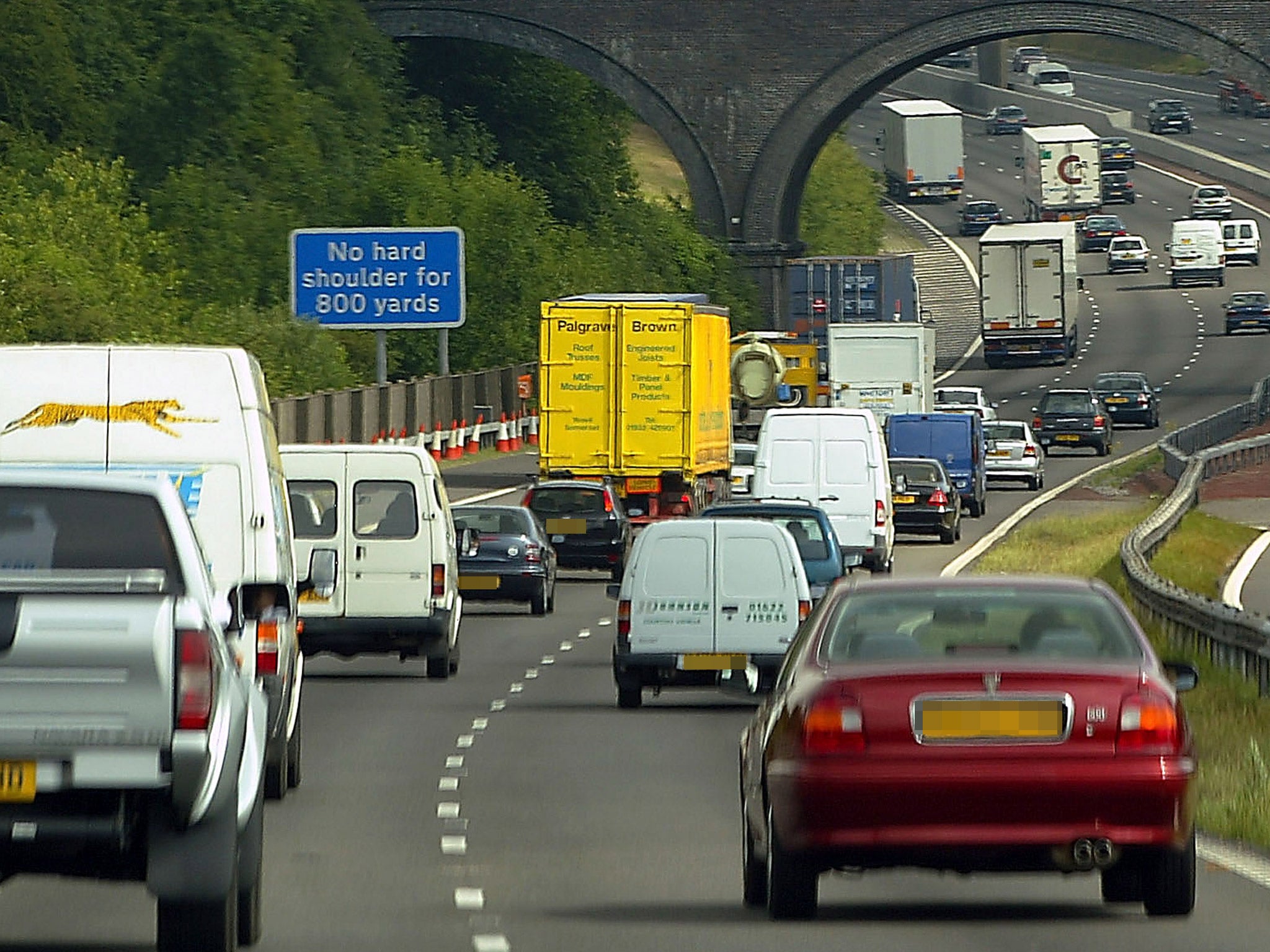Don’t drink and drive after ‘incredibly difficult year’, police warn
Forces launch annual Christmas driving crackdown

Your support helps us to tell the story
From reproductive rights to climate change to Big Tech, The Independent is on the ground when the story is developing. Whether it's investigating the financials of Elon Musk's pro-Trump PAC or producing our latest documentary, 'The A Word', which shines a light on the American women fighting for reproductive rights, we know how important it is to parse out the facts from the messaging.
At such a critical moment in US history, we need reporters on the ground. Your donation allows us to keep sending journalists to speak to both sides of the story.
The Independent is trusted by Americans across the entire political spectrum. And unlike many other quality news outlets, we choose not to lock Americans out of our reporting and analysis with paywalls. We believe quality journalism should be available to everyone, paid for by those who can afford it.
Your support makes all the difference.Police are pleading with motorists fed up with 2020 not to get behind the wheel after drowning their sorrows at Christmas or New Year.
Top officers admitted it had been an “incredibly difficult” year but said it was no excuse to drive drunk.
Forces launched their annual Christmas drink and drug-driving crackdown on Tuesday.
They will set up extra checkpoints across the UK, requiring motorists to undergo breath and drug testing.
During last year's operation, some 3,231 people failed a breath test or refused to give a sample over just a fortnight, while 1,175 failed a roadside drug test.
More than one-quarter of Britons drank more than usual between March and June this year, according to a study by Drinkaware.
The charity’s annual report into the UK’s drinking behaviour found job insecurity, poor mental health and a lack of daily structure contributed to far greater alcohol consumption at home in 2020.
Meanwhile, so-called “high-risk” drinking doubled during lockdown, according to the Royal College of Psychiatrists.
Commander Kyle Gordon, the National Police Chiefs' Council lead for roads operations, said in a statement: “I understand that this year has been incredibly difficult for everyone, and we all want to enjoy the festive season with loved ones, possibly even more this year than in others.
”It is certainly not our intention to stop anyone from celebrating during the Christmas period, but it remains a reality that drink or drug driving can, and does, kill.
“[This] is the time of the year when motorists seem to accept the risk of drinking and driving.
”Disappointingly, it is also the time of year when family and friends seem to tolerate their loved ones taking this risk, when they wouldn't dream of condoning this type of behaviour at other times of the year.“
Mr Gordon warned that the risk of offenders ”destroying a life and causing death or serious injury“ was ”incredibly high“.
The RAC said drink-drivers would only make a bad year worse, and cautioned that someone could still be over the limit the morning after a heavy drinking session.
Simon Williams, the company's road safety spokesperson, added: ”Drink-driving wrecks far too many lives as it is, so we can only hope for everyone's sake that the message gets through this year more than ever and people resist the urge to drive when over the limit.”
Home Office figures show just 285,000 roadside breath tests were conducted by officers in England and Wales in 2019, the lowest figure since current records began in 2002.
AA president Edmund King blamed the ”massive reduction in the number of specialist traffic officers“.
A recent report by the parliamentary advisory council for transport safety found that the number of officers dedicated to roads policing in England and Wales had fallen by almost one-fifth between 2015 and 2019.
Additional reporting by Press Association

Join our commenting forum
Join thought-provoking conversations, follow other Independent readers and see their replies
Comments